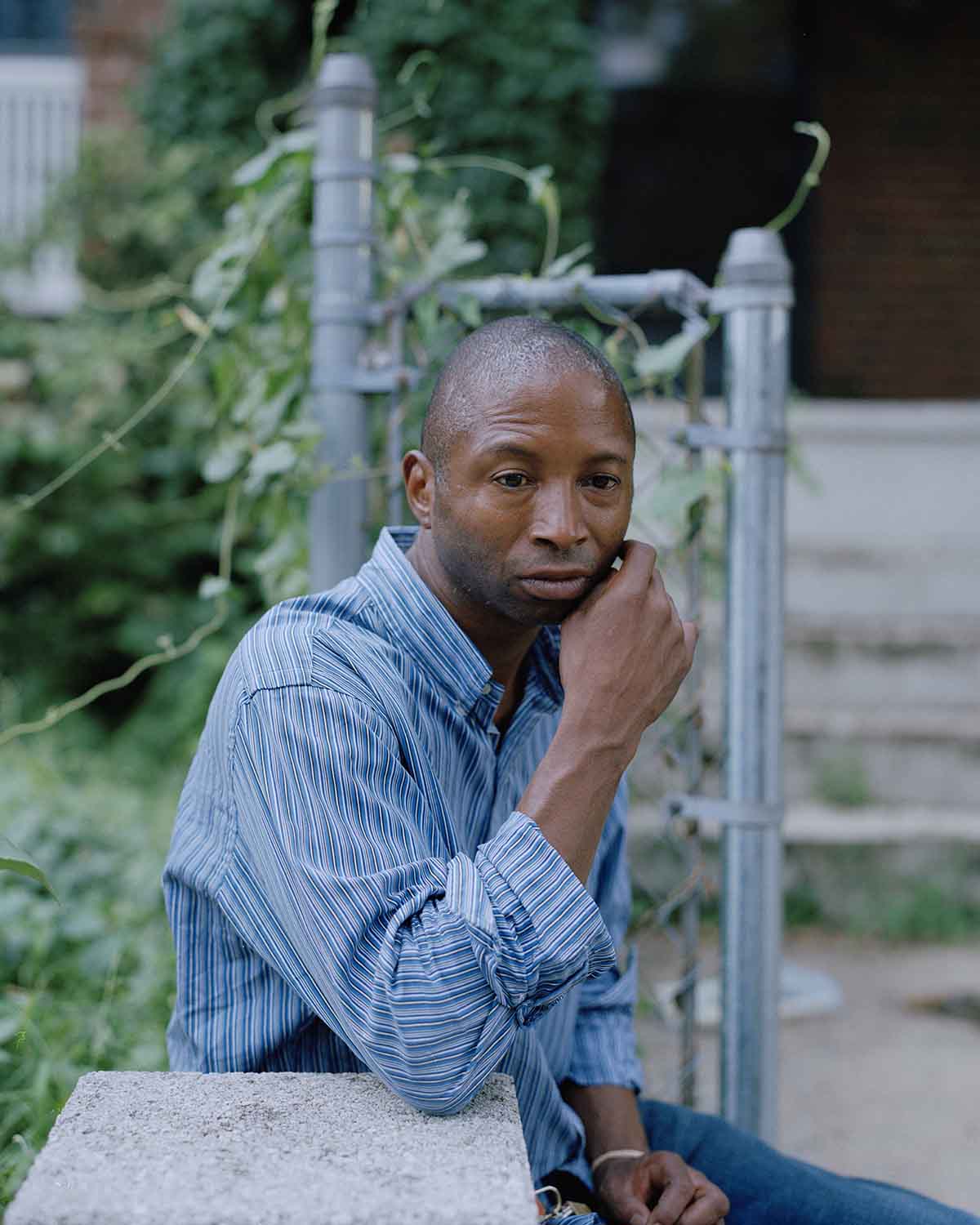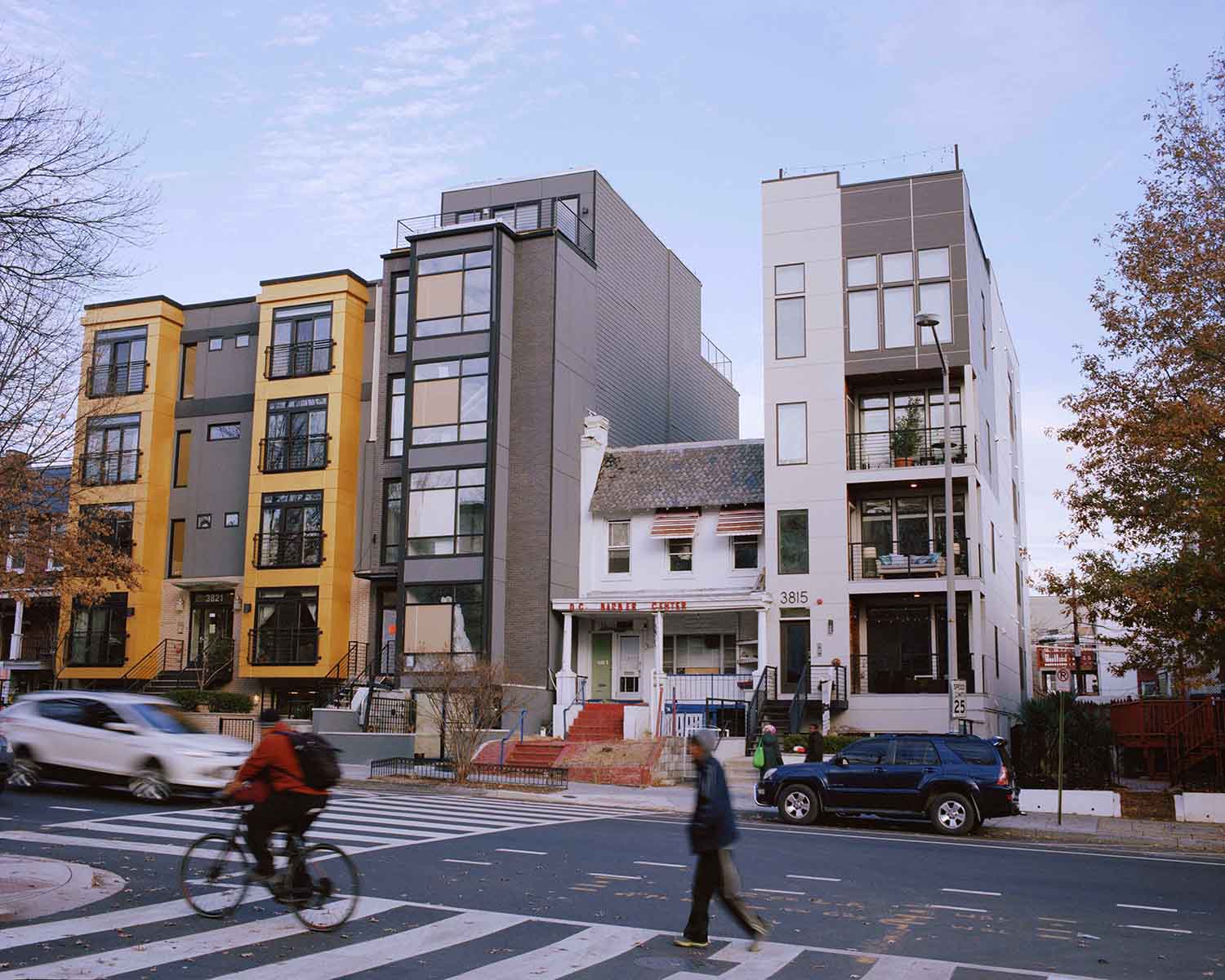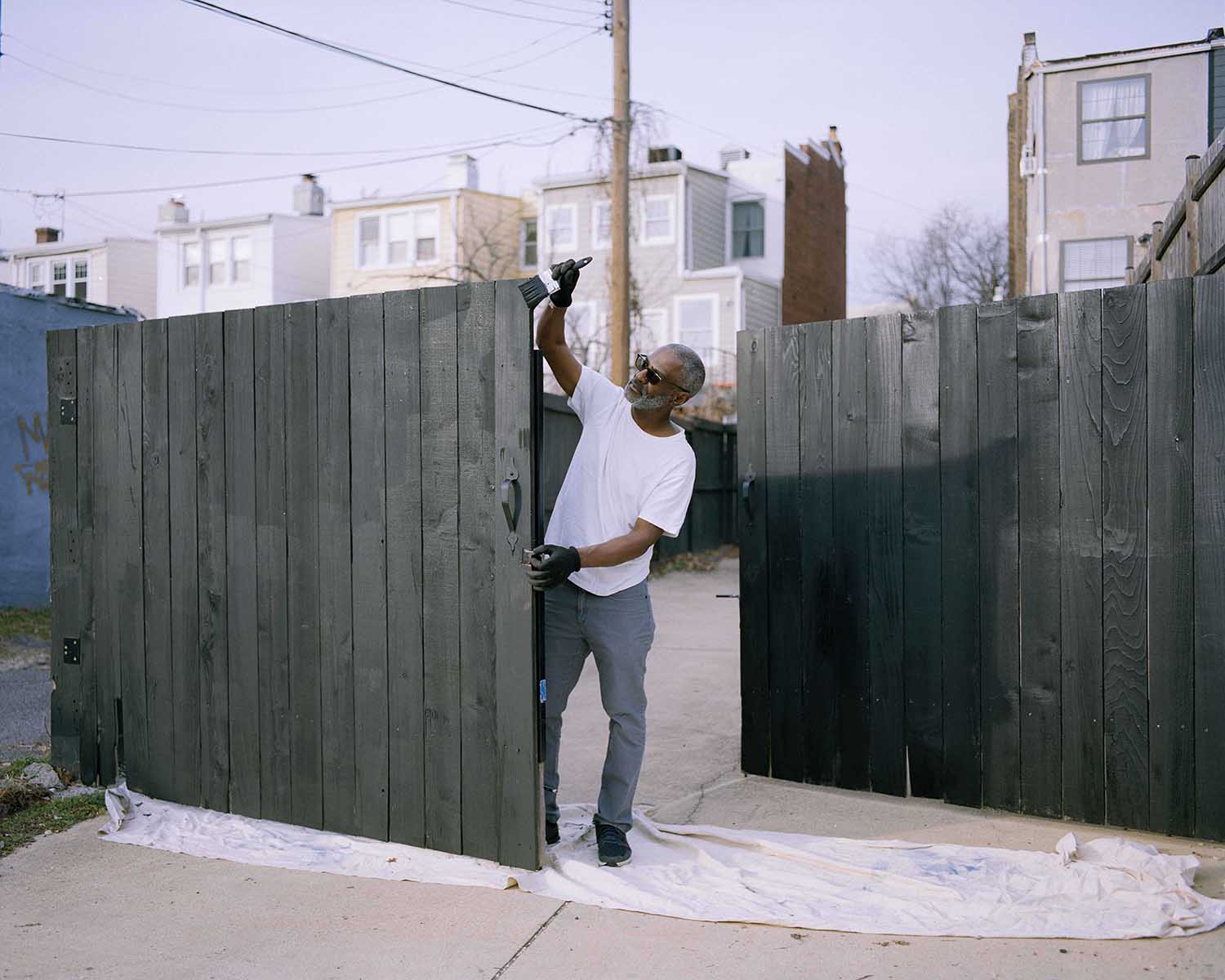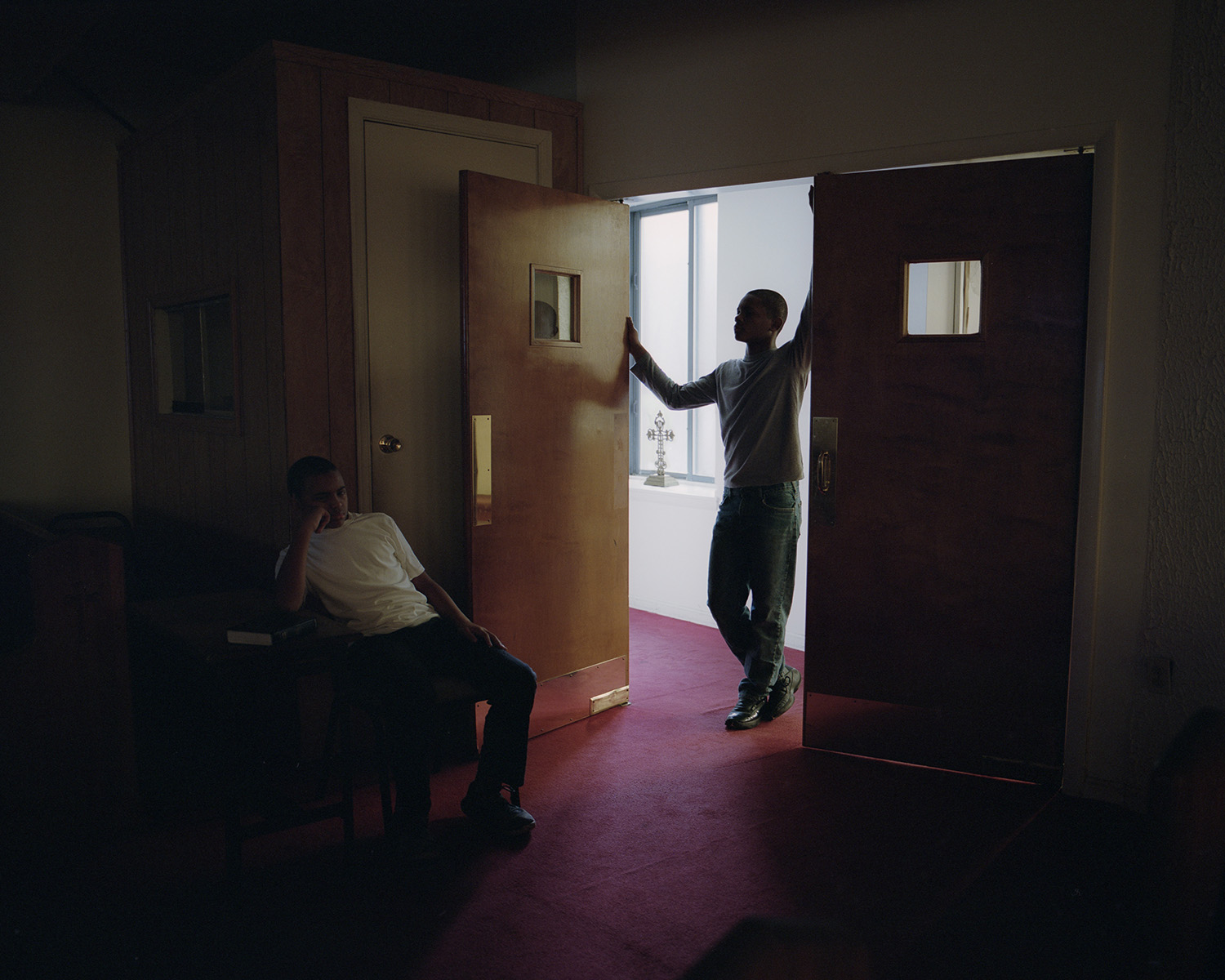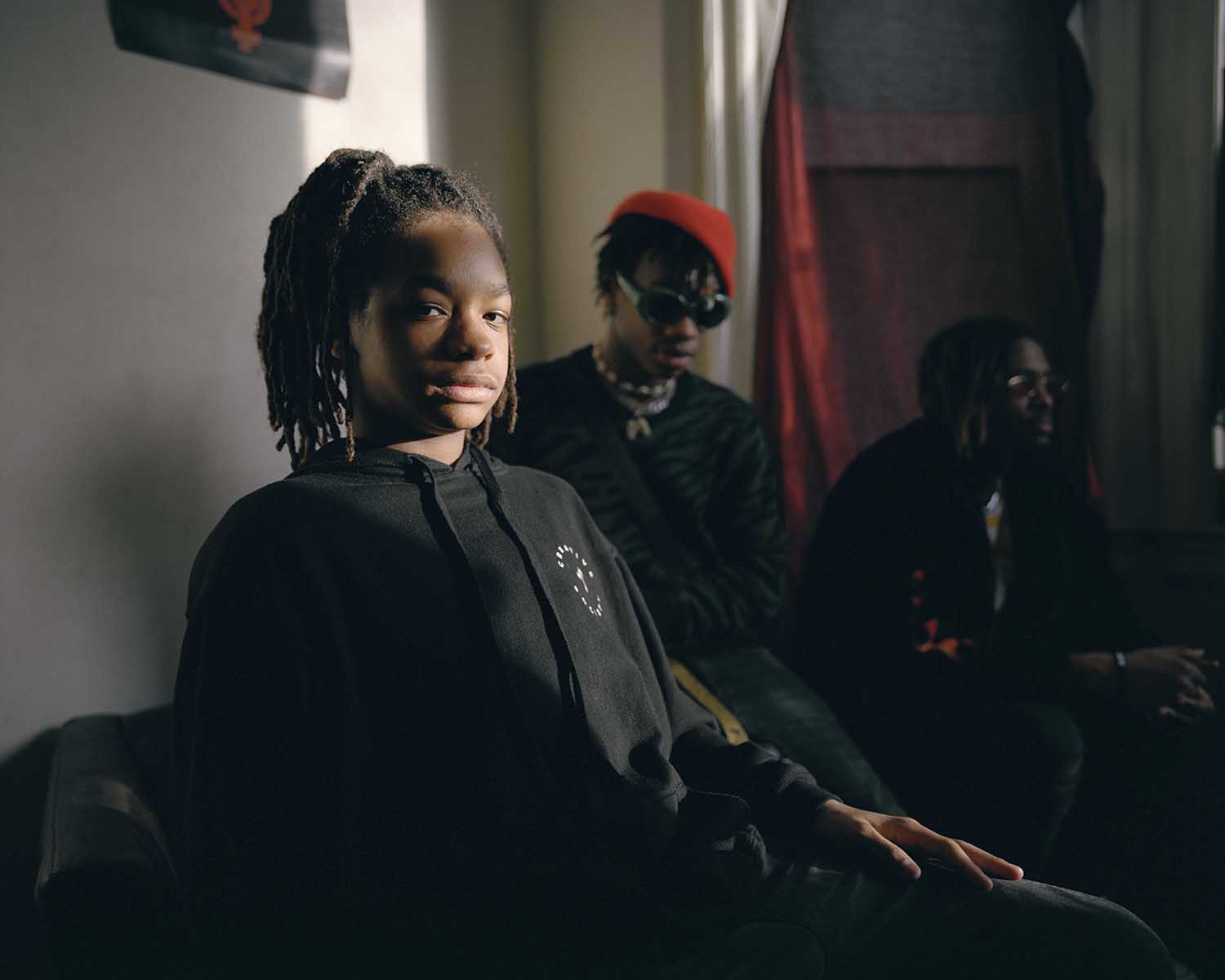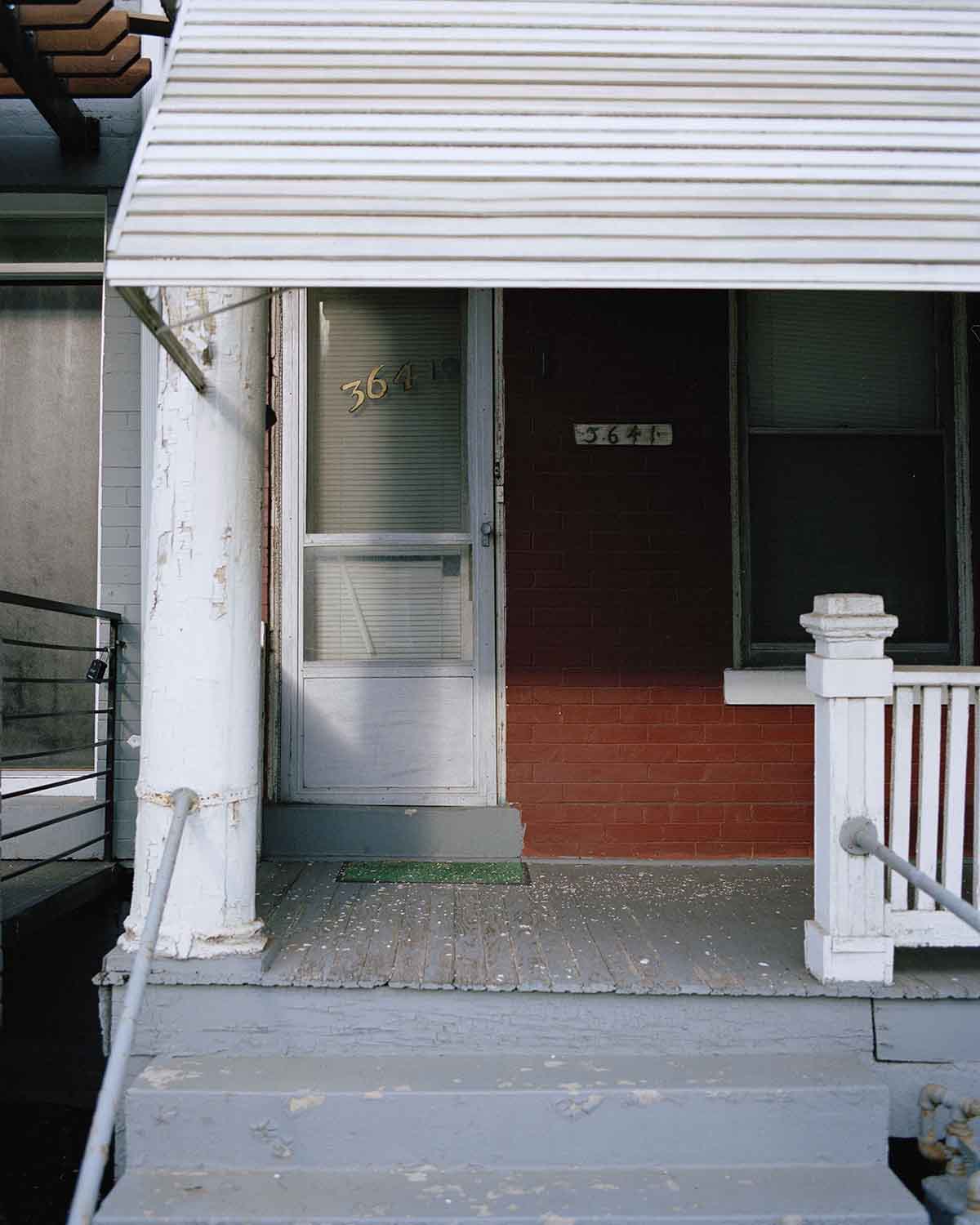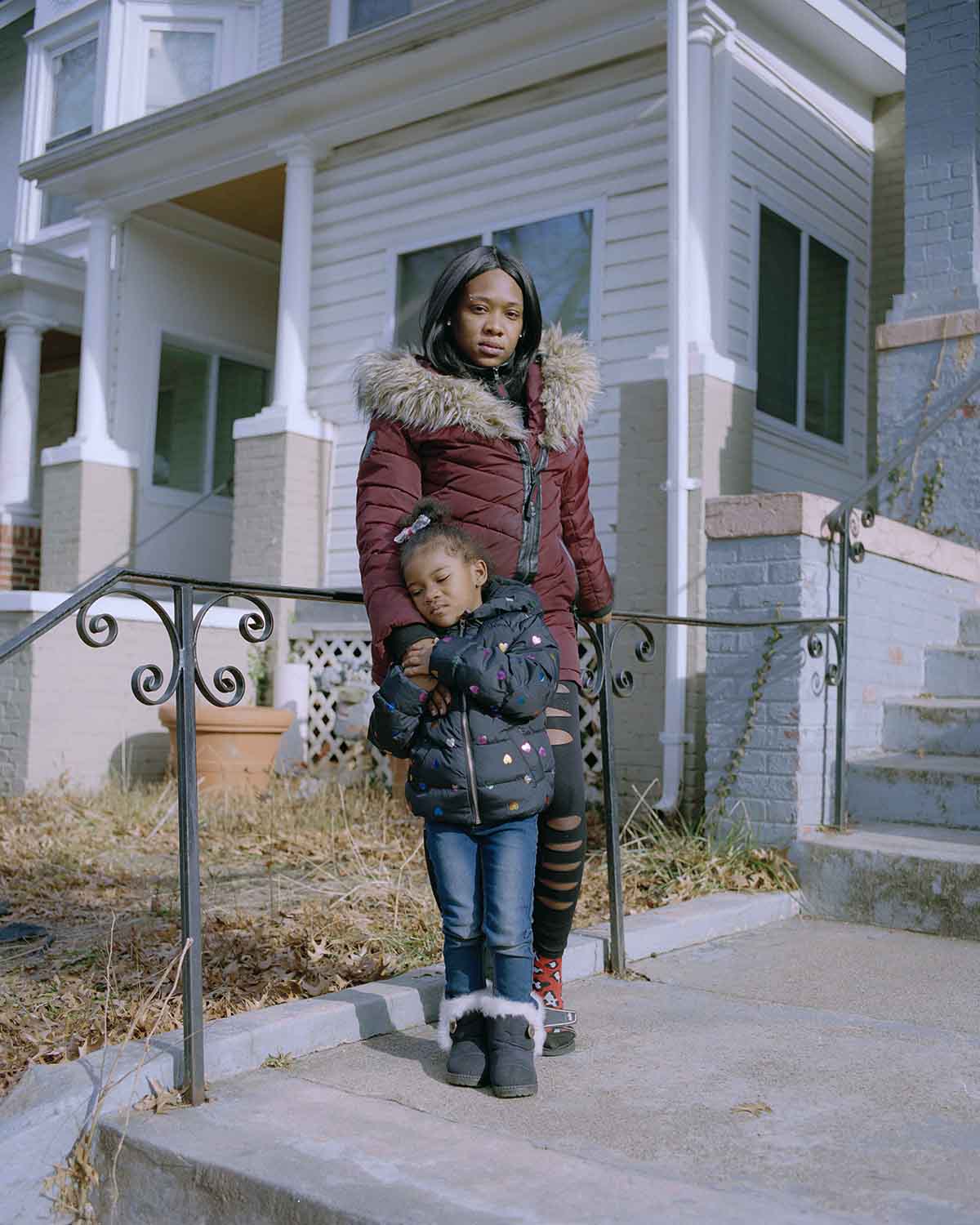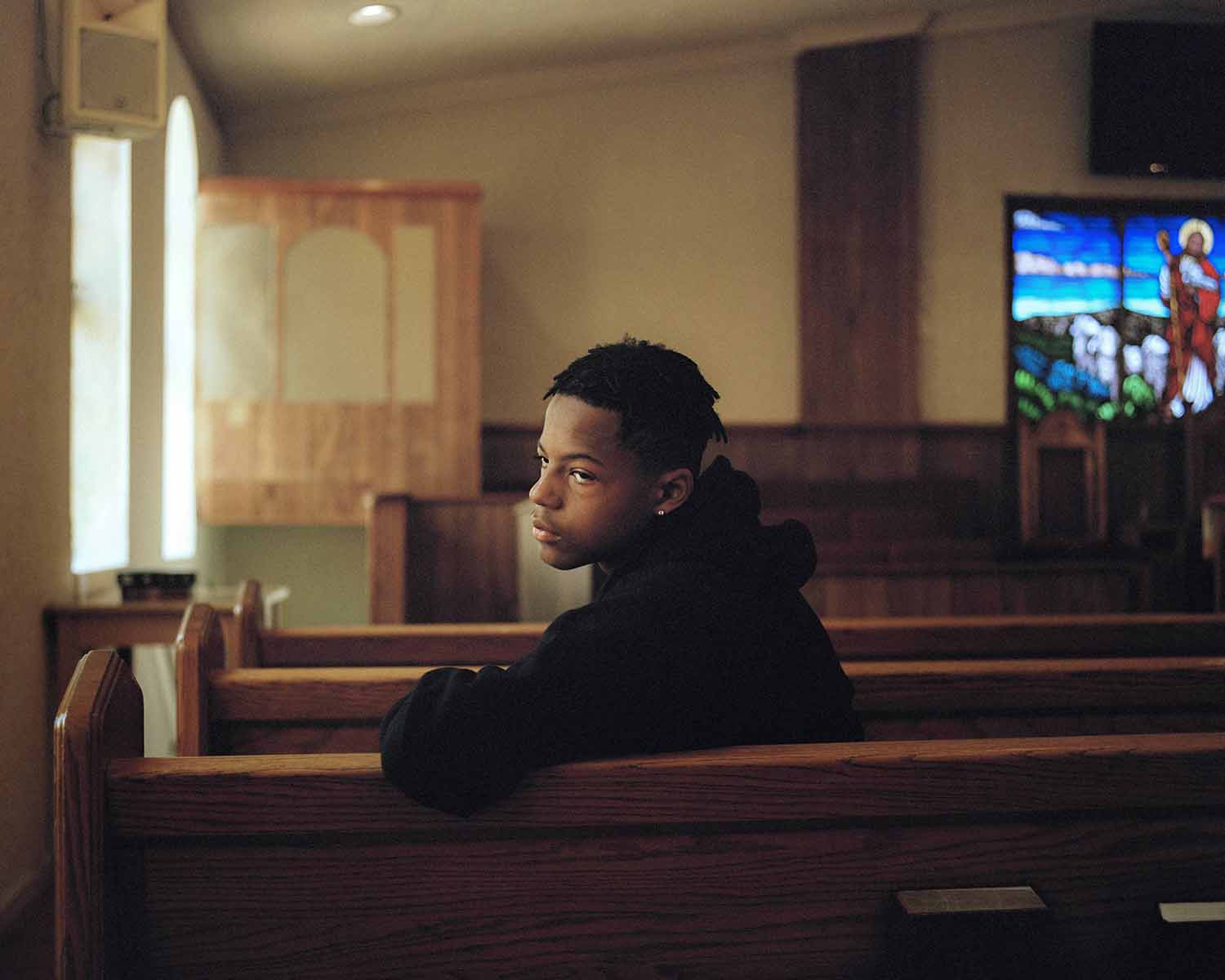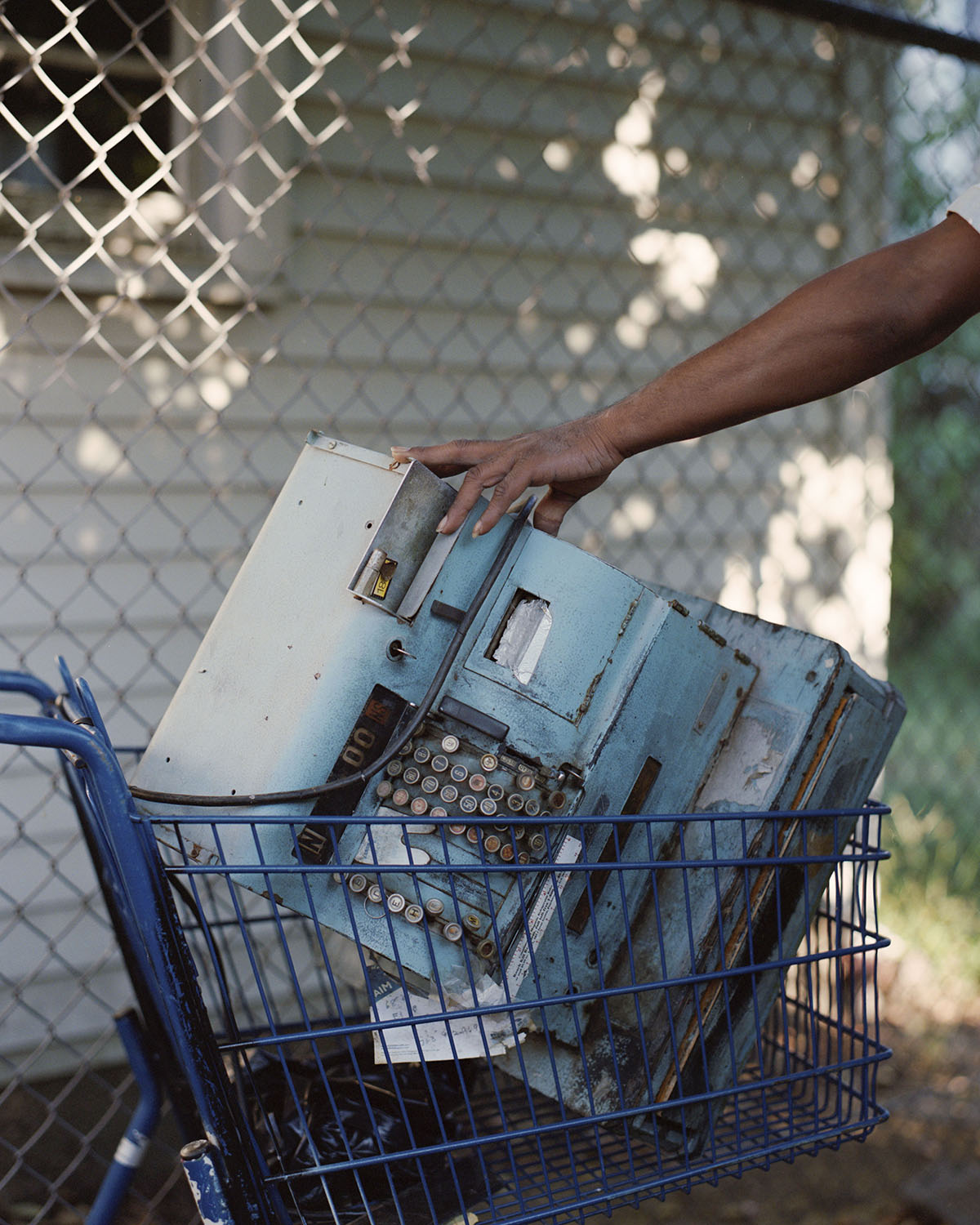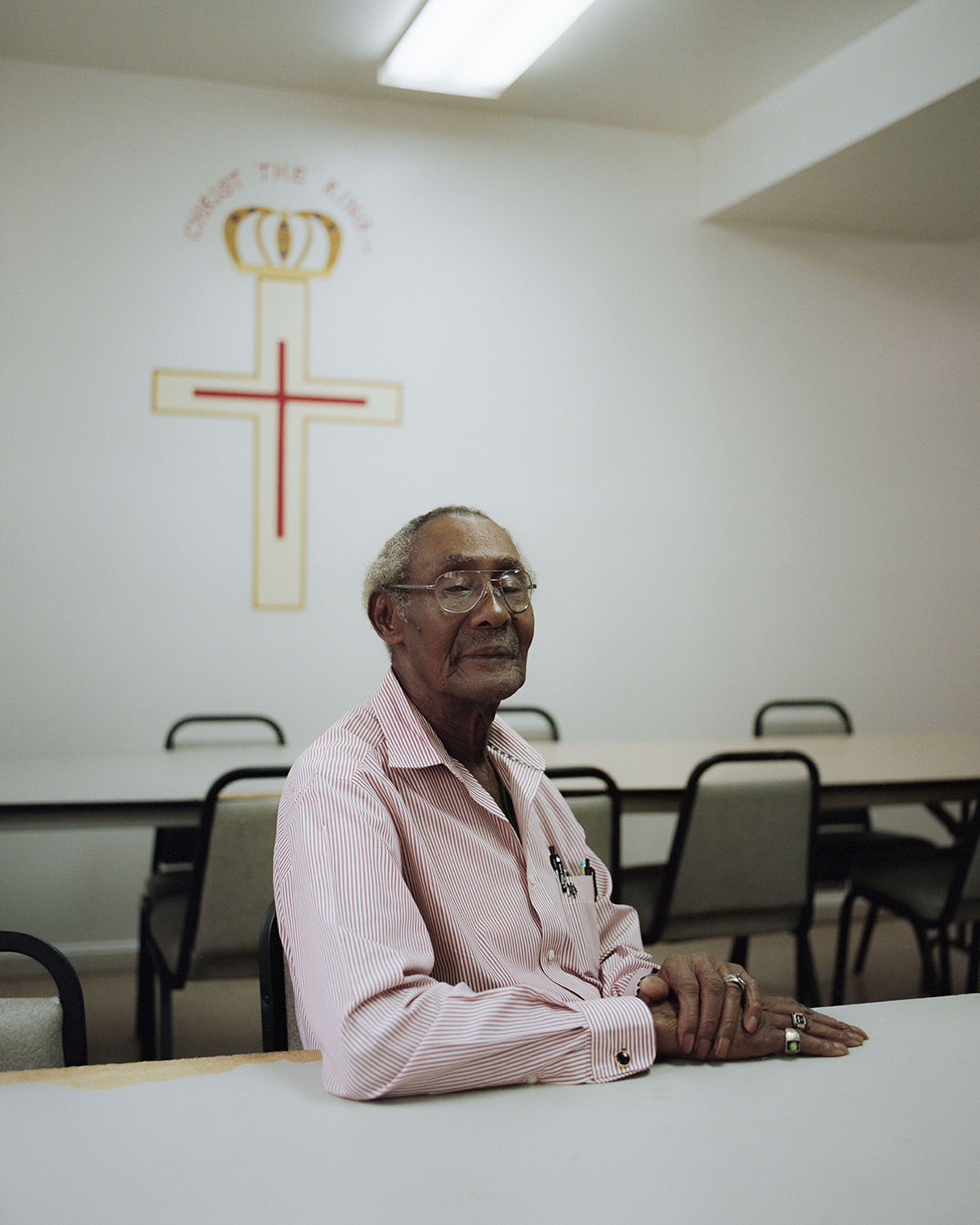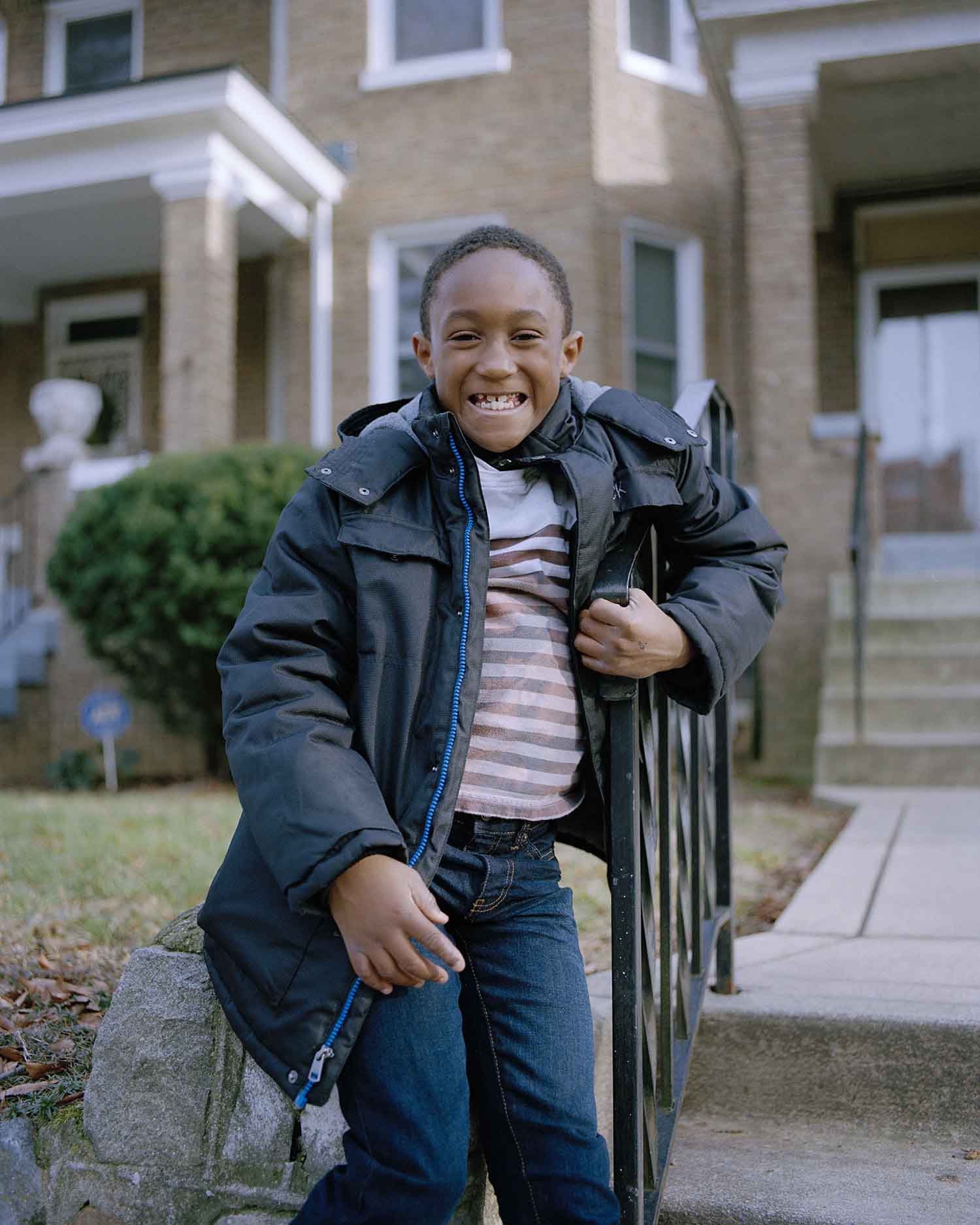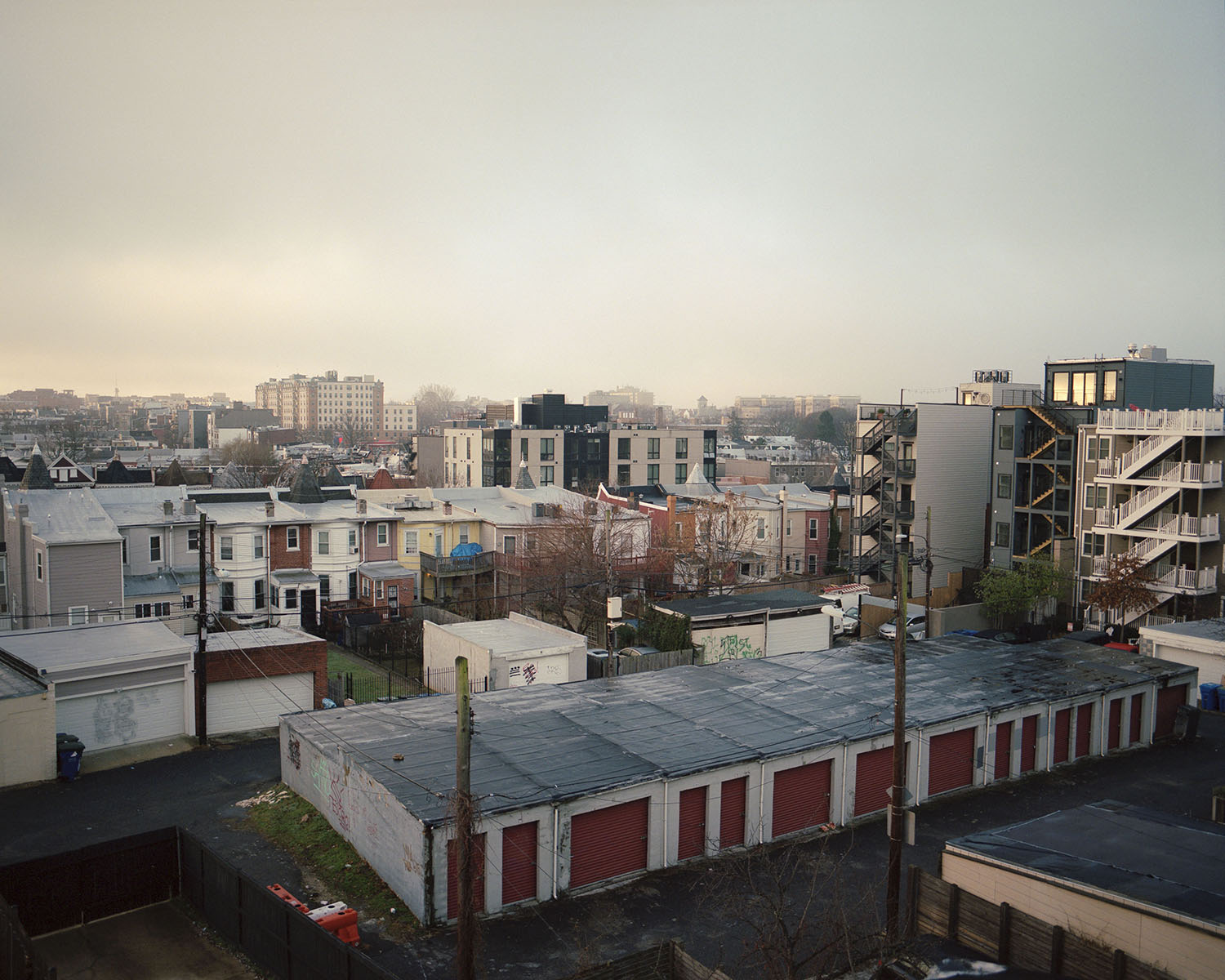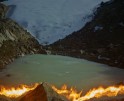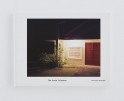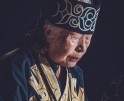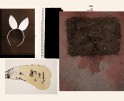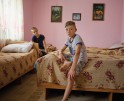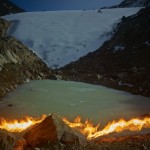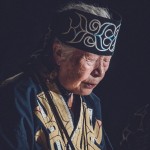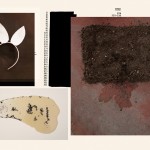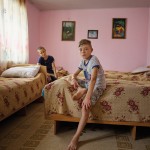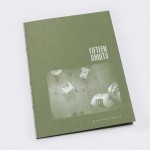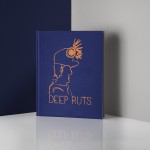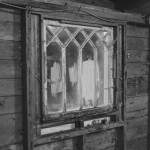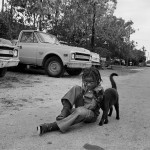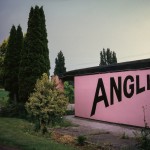Nate Palmer: On Domestic Life
How one defines home is often dictated by scale. Home could refer to another person. Perhaps a friend, a family member, or romantic partner. Home could refer to a house or structure. A room or a series of rooms arranged to taste and brimming with personal artifacts. Lastly, home could refer to a neighborhood. A community of people who share space and resources and in turn create a culture utterly unique to that location. Losing one’s home is a devastating experience of endless variety. Some fall out of love while others see their beloved house claimed by forest fire. Contrastingly, neighborhoods are often dismantled by a more structural hand; gentrification. In his series, Petworth, Washington DC based photographer Nate Palmer addresses this issue of change and systemic erasure in his hometown. Through highly sensitive portraiture he creates an homage to the neighborhood’s residents both past and present. Ultimately It’s easy to identify what gentrification brings. Modern condo complexes and a rush of high end cafes and breweries for those who can afford them. As families are forced out and long term residents are disregarded, it’s much harder to quantify what is lost.
Nate Palmer is a documentary portrait photographer living and working in his hometown, Washington, DC. His work focuses on love, tenderness and care, primarily within Black-American communities. Nate received a BFA in photography and imaging from NYU Tisch and is now a regular contributor to the New York Times, National Geographic and Rolling Stone, among other publications.
Petworth
Gentrification is an issue at the forefront of the American urban landscape. It has become an accepted feature of urban growth and development, while those hardest hit by the increased costs of living and cultural erosion are largely disregarded.
I grew up in the uptown Washington, DC neighborhood of Petworth, which in the mid-20th century was a vibrant Black upper-middle class neighborhood. After decades of neglect and decay following the 1968 Martin Luther King riots, the city mobilized plans to revitalize Petworth and the surrounding areas. The effects of gentrification quickly began to take hold on long-term residents, driving out Black-owned businesses, Black churches and Black families.
I have witnessed the immediate effects of gentrification on the place I call home. My personal connection to the neighborhood lends itself to a series that is sensitive and descriptive. “Petworth” aims to honor and be a voice for long-term residents, both current and former, while memorializing a moment in a changing community.
There is an overwhelming sentiment among my neighbors that the neighborhood should change for the benefit of all residents, not just those fortunate enough to afford it.
Growing up, what was your perception of your neighborhood? How did that perception change over time?
Growing up in Petworth, I don’t think it ever came to my mind that the neighborhood wouldn’t be the same forever, even though it was already changing at the time. It’s hard to describe my perception of it because it was my normal. As I got older I started to pick up on what was happening in the area, neighbors moving out, new neighbors moving in, the landscape and the infrastructure changing, increased police presence, decrease in black-owned businesses; all of these pieces really started to come together as I got older. This place that had always felt like home to me now felt a little foreign.
Do you have a first memory regarding photography? What was the initial feeling when you picked up the camera? Do you recall the first images you made?
The very first memory I have of photography was when I was about 11 years old. I got a little digital point-and-shoot for christmas and one of the first things I did with it was take pictures of my brother jumping into the pool. I remember how cool I thought it was zooming into the individual drops of water splashing in the frame. Not to turn that into something overly meaningful but photography at the time was something I did because it was fun. It was a new technology I was discovering for the first time. I took that point-and-shoot with me everywhere I went at the time.
The portraits in Petworth feel remarkably intimate and tender. Did you have a relationship with many of your subjects prior to photographing them? Describe a memorable interaction you had while making these portraits.
Some of the people I made photos for this series I’d known growing up and others I met on the street. In either circumstance I never jump into photographing a person I meet on the street off the bat. I’ve never been able to make a meaningful photograph in that way. Aside from that, I think it’s really important to talk and to share and to get to know one another before photographing a person. The person in front and behind the camera can make a photograph together at that point as opposed to a photographer taking a photograph from someone.
What were challenges you encountered while making this body of work? How did you overcome them?
Finding a way to portray an issue as broad as gentrification has definitely been the most significant challenge but I still don’t think I’ve been able to overcome that. It’s important to me to focus on one area (Petworth) as a microcosm for the broader issue, but to capture all the nuances of gentrification in a cohesive series is a goal that I’ll probably be working towards forever.
What are your hopes for this series? Do you plan to continue making images of your neighborhood in the coming years?
This project is still ongoing. I plan to continue documenting the changes in my neighborhood for years. I would love to turn the series into a book at some point and have an exhibition of the work somewhere in the neighborhood too.
Posts on Lenscratch may not be reproduced without the permission of the Lenscratch staff and the photographer.
Recommended
-
Earth Week: Simon Norfolk: When I am Laid in EarthApril 27th, 2024
-
Shinichiro Nagasawa: The Bonin IslandersApril 2nd, 2024
-
The International Women in Photo Association Awards: Lorraine Turci: The Resilience of the CrowMarch 16th, 2024
-
The International Women in Photo Association Awards: Rayito Flores Pelcastre: Chirping of CricketsMarch 14th, 2024
-
The International Women in Photo Association Awards: Louise Amelie: What Does Migration Mean for those who Stay BehindMarch 12th, 2024

